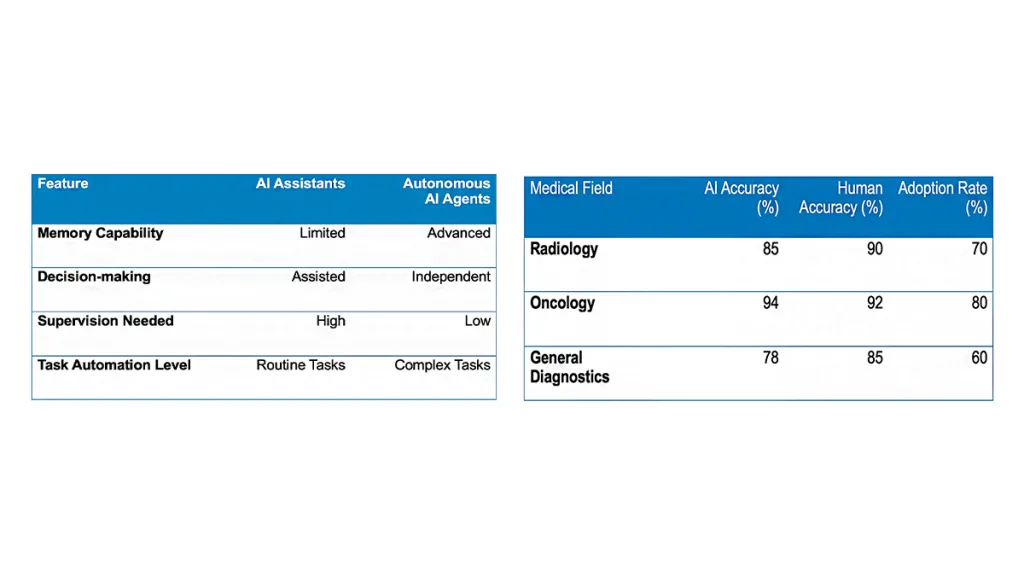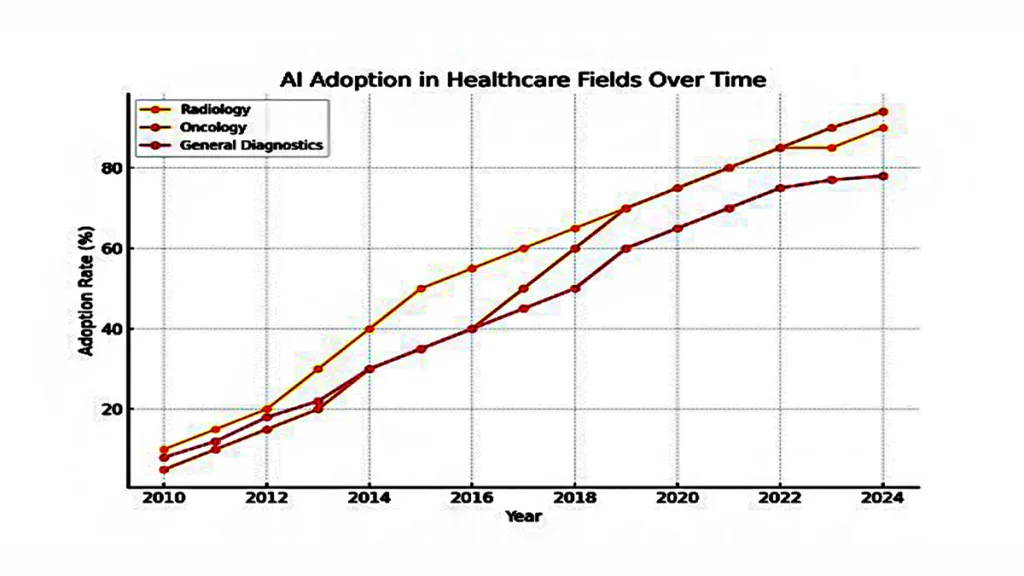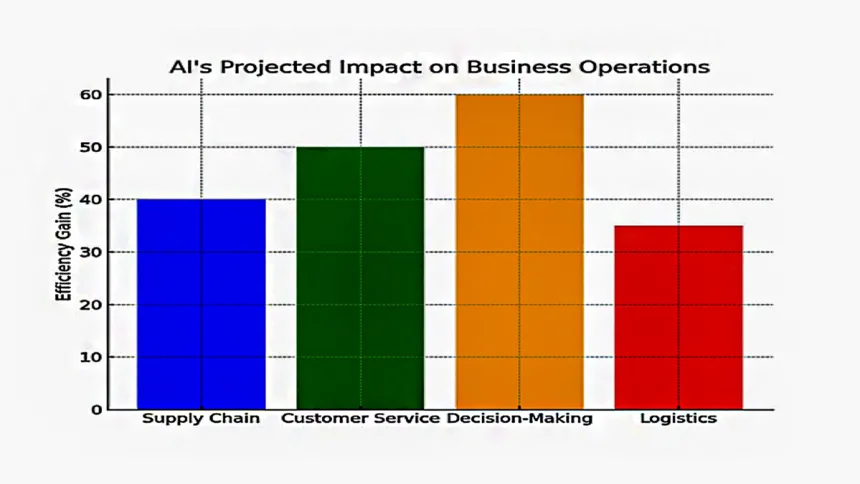Artificial Intelligence (AI) is reshaping various industries, and its transformative potential is evident in healthcare and business. While AI breakthroughs promise advancements in diagnosis, automation, and decision-making, questions linger about its long-term impact on human roles and operational dynamics. This article explores recent AI developments in healthcare and corporate operations, offering a comprehensive view of its current role and near-future prospects.
The medical AI conundrum: Augmentation, not replacement
Healthcare has long been viewed as a sector ripe for AI disruption. The notion that algorithms could surpass human expertise in diagnostics has generated excitement and apprehension. In 2016, a renowned British-Canadian computer scientist, Geoffrey Hinton, predicted that AI would soon replace radiologists, advising against training new ones. However, eight years later, the reality presents a nuanced picture.
Recent studies have examined the enduring role of human expertise in healthcare. Despite advancements, AI has not progressed in specific areas, such as mammography and colonoscopy. The expected displacement of healthcare professionals has yet to materialize, with human oversight remaining crucial. Robert Wachter, Chair of the Department of Medicine at the University of California, San Francisco, notes that the complexity of clinical contexts means AI, while helpful in augmenting workflows, still needs to replace human roles. Transformative AI-driven changes are expected but are a decade or more away.
AI’s incremental contributions are undeniable. Its role in identifying new drugs and treatments, such as finding Baricitinib for COVID-19 complications, demonstrates its growing utility in research and drug development. McKinsey estimates AI could generate $60 billion to $110 billion annually for the pharmaceutical and medical sectors by streamlining drug discovery and approval processes. However, at this stage, AI in healthcare is complementary to a replacement for human professionals.

“Chief” AI: The new frontier in cancer detection
One of the most promising developments in AI healthcare diagnostics comes from Harvard Medical School, which unveiled a foundational AI model called “Chief.” This advanced platform, designed to detect and evaluate multiple types of cancer, represents a significant breakthrough in the medical field. The Chief model can assess tumors, predict patient survival rates, and suggest treatments, often outperforming other diagnostic methods by a remarkable 36%.
Trained on millions of digital slides and validated by data from hospitals worldwide, Chief’s 94% accuracy rate in cancer detection marks a significant leap forward in diagnostic capabilities. The model’s ability to predict genetic aberrations could revolutionize treatment selection, reducing reliance on costly DNA sequencing. Harvard’s team envisions using Chief in underserved regions where such technology could improve patient outcomes.
Also read: AI in Medicine: Challenges, Myths and the Future
While tools like Chief offer a glimpse into the future of AI-powered diagnostics, their widespread application will require further research and validation. The promise of AI in healthcare remains compelling.
From digital assistants to autonomous agents: AI’s corporate evolution
Beyond healthcare, AI is making its mark on business operations. The rapid evolution from AI copilots, AI assistants that help with routine tasks, to autonomous AI agents has been the latest focus of the tech industry. Leading companies like Microsoft, Salesforce, and Workday have embraced AI agents to automate complex tasks, presenting a vision of a future where AI handles entire business workflows.
Recent developments highlight the shift in the software industry from AI copilots to “agentic” systems. These agents, powered by advancements in memory and planning capabilities, can now take action on behalf of users, such as filling out expense reports or managing customer support. For companies like Microsoft, AI is evolving into what CEO Satya Nadella describes as an “enterprise orchestration layer,” where agents serve as the backbone of business processes.
The future of business success will depend not just on assembling the best human team, but on creating the effective partnership between human expertise and AI capabilities.
However, enthusiasm for AI agents is tempered by practical concerns. The probabilistic nature of AI systems means users remain cautious about unsupervised actions, and the technology is still prone to generating unreliable outputs, known as “hallucinations.” The AI industry remains in a “show me” phase, where customers demand evidence of real productivity gains before adopting the technology. Still, major software players are positioning themselves for a future where AI agents could redefine how businesses operate.
The AI executive suite: Envisioning algorithmic leadership
With AI’s growing influence in business, some thought leaders speculate on the next logical step: appointing AI as a Chief Operating Officer (COO). In August 2024, Rupert Younger, Director of the Oxford University Center for Corporate Reputation, posited that AI systems, with their unmatched capacity for data-driven decision-making and operational efficiency, could take on senior leadership roles, managing supply chains, optimizing logistics, and ensuring smooth operational workflows.

AI COOs, unlike their human counterparts, could work 24/7 without fatigue, process vast amounts of information in real-time, and decide with unmatched precision. The potential for cost savings, improved productivity, and strategic foresight makes AI a compelling candidate for this role.
However, trust and transparency issues must first be addressed. Boards of directors would need to overcome skepticism from employees and shareholders before entrusting AI with such a pivotal position.
The AI horizon: Gradual transformation or disruptive leap?
AI’s integration into healthcare and business differs from the immediate revolution that some predicted. Instead, it appears to be a gradual evolution. AI tools enhance but do not replace human expertise in healthcare, offering vital support in diagnostics and drug development. AI agents are poised to automate routine tasks in business, but autonomous operations remain distant.
Looking ahead, AI’s role in senior management positions, like the COO, could herald a new era of operational efficiency. However, its adoption will require overcoming significant trust barriers. While AI is reshaping the healthcare and business landscape, its journey toward widespread adoption is still unfolding—marked by incremental progress rather than overnight disruption.




















